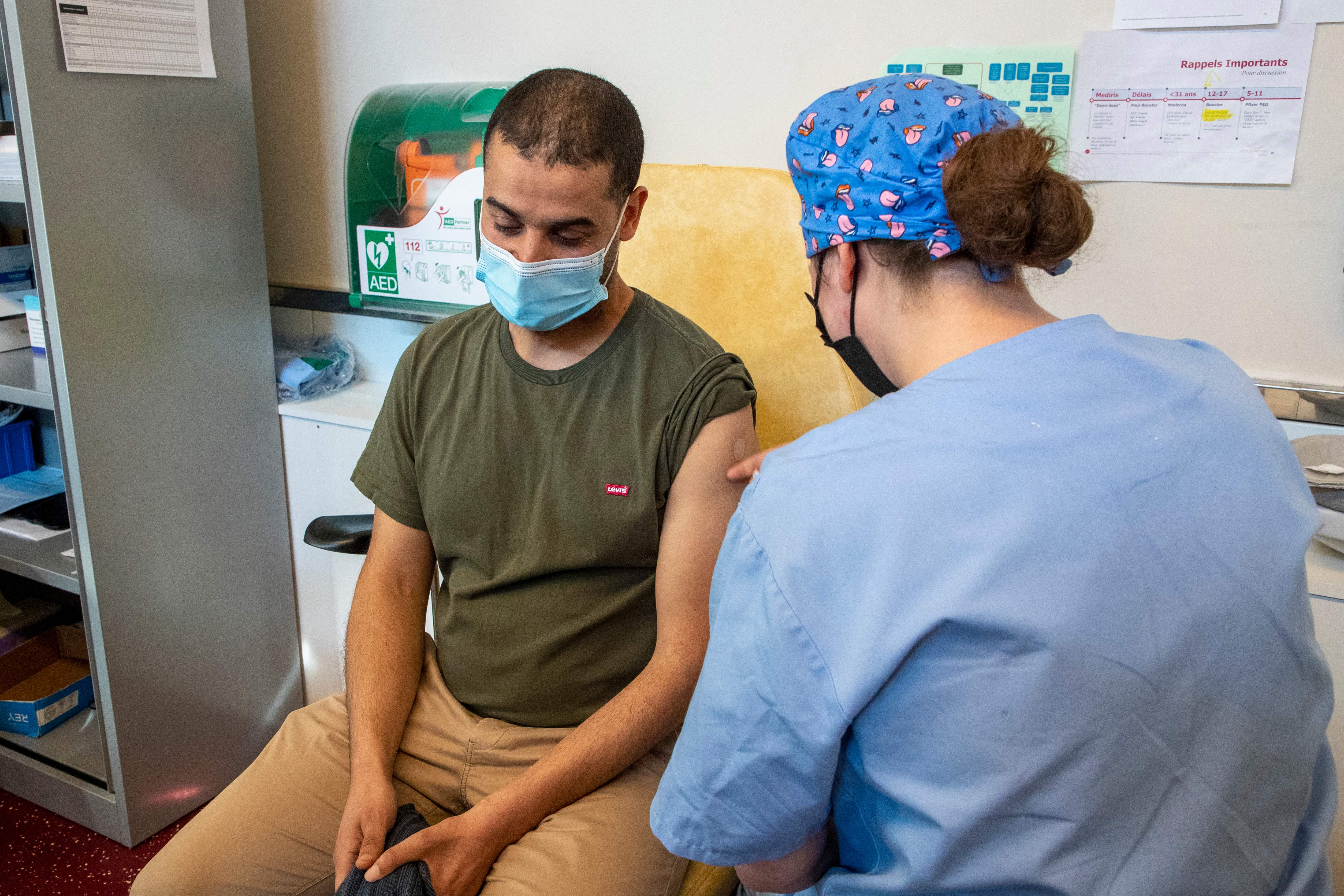Nearly one in five couples divided on Covid vaccination
Research suggests a significant number of couples disagree about getting the jab, reports Eleanor Sly

Almost one in five couples are divided on whether or not they should be vaccinated against Covid, a survey by American researchers found.
Research by Washington State University found a small yet significant portion of couples are made up of one partner who is vaccinated and another who is not.
Reasons for avoiding vaccination against Covid-19 varied and appeared to differ depending on which partner in the couple was reporting it. This was particularly notable when it came to religious reasons.
Among the respondents in the survey, 1,300 lived with their significant others and most reported being in a “concordant” relationship. This means either both they and their partners were vaccinated, 63.28 per cent, or both were unvaccinated, 21.09 per cent.
The remaining proportion (15.63 per cent) were in a “discordant” relationship. This means that one partner had received the jab, while the other had not.
According to Karen Schmaling, a WSU psychologist, partners have been shown to have a lot of influence on each other’s health behaviors. Ms Schmaling conducted the first known scientific study to look into this issue and detailing the results in the journal Vaccine.
“Vaccines clearly decrease the likelihood of infection and severity of illness, so discordant couples could be a real focus of identification and intervention efforts,” said Ms Schmaling. “The numbers might be small in this study, but in terms of public health – if this translates to about 16 per cent of the US population, that’s a huge number.”
Within the survey, respondents in discordant couples were asked to rank 10 common reasons for being unvaccinated on a scale of 0 to 10 for their importance.
People on both sides of the issue ranked vaccine safety as having the highest level of importance as a reason either they or their partners were not vaccinated.
However, there were significant differences when it came to other reasons. Vaccinated people ranked the misperception that “Covid-19 isn’t real” and medical issues as stronger reasons and religious opposition as less strong reasons as to why their partners had refused the vaccine.
Ms Schmaling also noted that answers from vaccinated people for why their significant others remained unvaccinated had included “the government is overstepping its bounds” and “he’s stubborn.”
Answers from self-reporting unvaccinated people included “I am not afraid of Covid” and “I have natural immunity.”
Only individuals were questioned in the survey and not both members of each couple. Ms Schmaling suggested that questioning both members of the couple would be sensible for future research.
She warned that circumstances resulting in apparent discordant behavior in this study might not indicate a real disagreement. Situations such as when someone had to be vaccinated for a job could explain this.
Ms Schmaling explained: “The first thing is to try to estimate how common this is, and the next is to figure out why.”
She added: “If it looks like there’s a disagreement, it would be fascinating to find out from some of these couples what their conversations have been like and how have they tried to resolve it?”
The research comes as some countries are begin to roll out a fourth round of Covid vaccinations for the most vulnerable.






Join our commenting forum
Join thought-provoking conversations, follow other Independent readers and see their replies
Comments